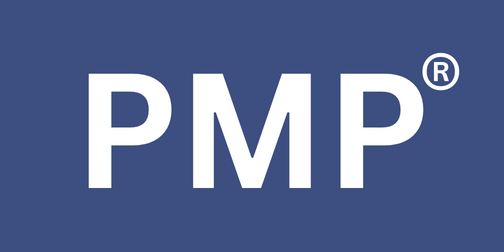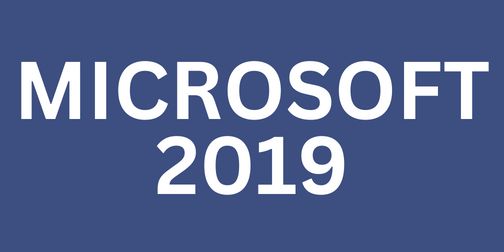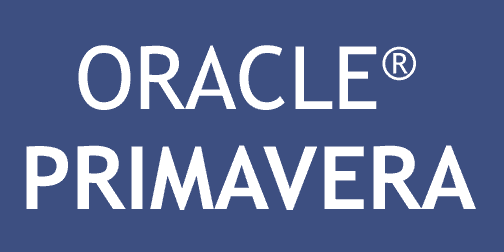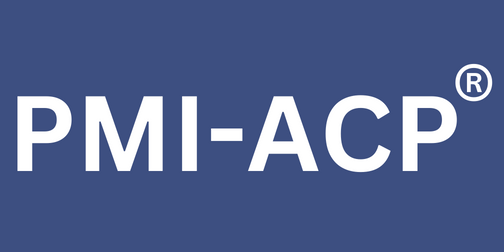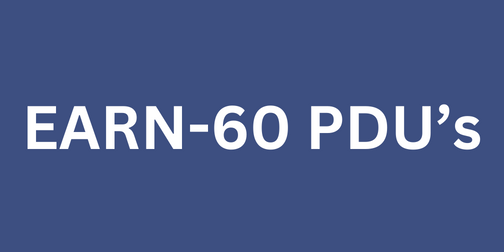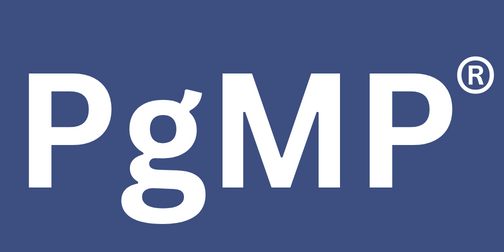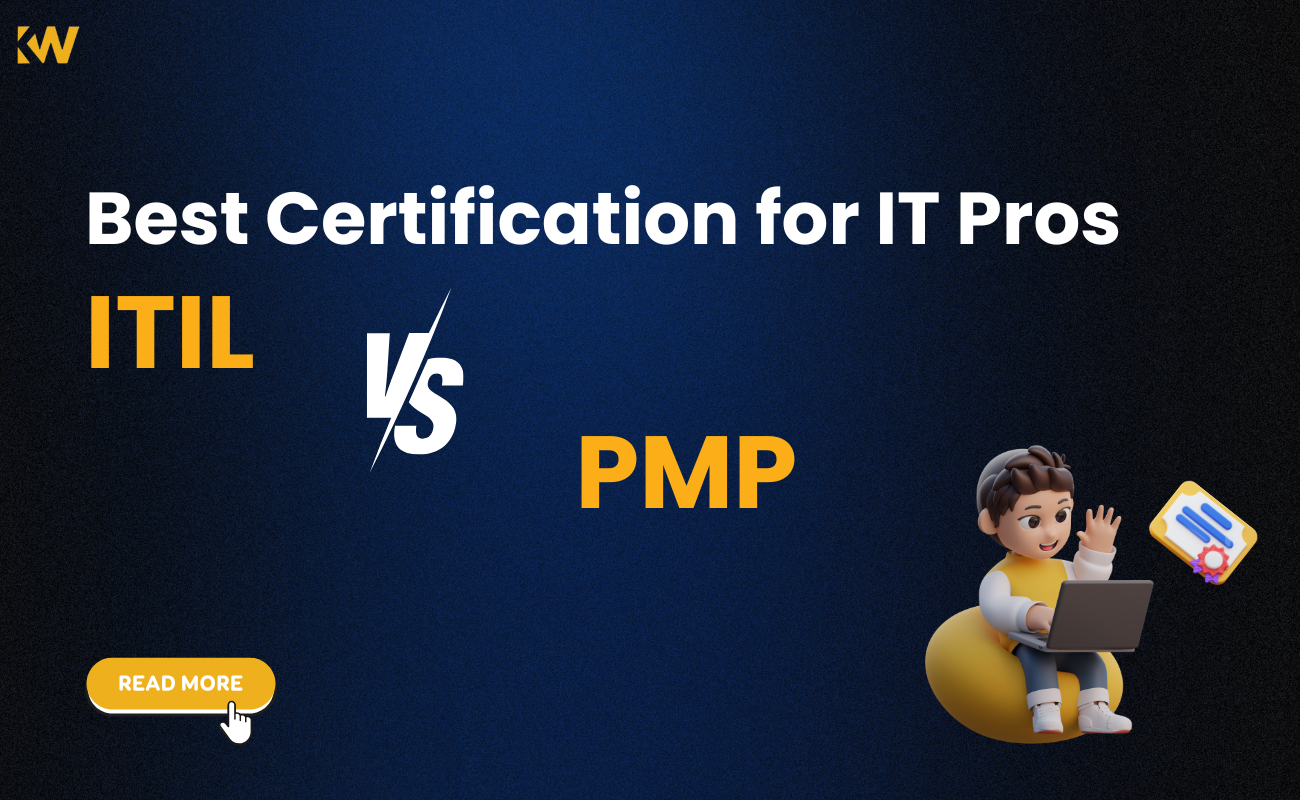
ITIL vs PMP: Which Certification is Better for IT Professionals?
Posted On April 24, 2025 - 12:27 PM
Table of Contents
-
Understanding ITIL and PMP
-
Key Differences Between ITIL and PMP
-
Pros and Cons for IT Professionals
-
Career Opportunities and Industry Demand
-
Choosing the Right Certification
-
Integrating ITIL and PMP for Career Growth
-
Conclusion
In the fast-evolving landscape of IT and business, professional certifications have become a cornerstone of career growth. Among the most recognized credentials are ITIL (Information Technology Infrastructure Library) and PMP (Project Management Professional). Though both are revered in their own right, they serve very different purposes. This in-depth guide breaks down the intricacies of both certifications, enabling IT professionals to make an informed decision.
Also Read : Best Project Management Certifications in 2025: Which One Should You Choose?
Understanding ITIL and PMP
What is ITIL?
ITIL is a globally accepted framework designed to standardize the selection, planning, delivery, and maintenance of IT services. It ensures that IT services align with the needs of the business, offering a systematic and professional approach to IT service management (ITSM).
-
Framework Type: ITIL is process-oriented.
-
Focus Area: IT service lifecycle.
-
Certification Levels:
-
ITIL Foundation
-
ITIL Practitioner
-
ITIL Intermediate
-
ITIL Expert
-
ITIL Master
-
Governing Body: AXELOS, a joint venture between the UK Government and Capita.
What is PMP?
The PMP certification, awarded by the Project Management Institute (PMI), validates an individual’s competence to lead and direct projects. Unlike ITIL, which is service-oriented, PMP is project-based and applies across industries.
-
Framework Type: PMP is project-oriented.
-
Focus Area: Project lifecycle.
-
Certification Level: Single-level certification with continuous education required.
-
Governing Body: PMI (Project Management Institute)
Key Differences Between ITIL and PMP
| Feature | ITIL | PMP |
| Primary Focus | IT Service Management | Project Management |
| Industry Applicability | IT-centric | Cross-industry |
| Framework Type | Process-oriented | Project lifecycle-oriented |
| Certification Levels | Multi-tier | Single-tier |
| Prerequisites | None for Foundation | 3+ years of project experience + 35 PDUs |
| Exam Structure | Multiple-choice (based on ITIL lifecycle) | Situational MCQs aligned with PMBOK® Guide |
| Renewal/Validity | Varies based on level | 60 PDUs every 3 years |
| Governing Body | AXELOS | PMI |
| Global Recognition | Strong in IT domains | Globally recognized across sectors |
Pros and Cons for IT Professionals
ITIL Certification
Pros:
-
Tailored to IT environments, making it highly relevant for IT professionals.
-
Focuses on improving service quality and delivery.
-
Well-suited for roles such as Service Manager, Operations Manager, and Helpdesk Lead.
-
Offers a structured career path through multiple levels.
Cons:
-
Limited use outside of IT-specific domains.
-
Not ideal for professionals interested in broader project management roles.
-
Requires multiple certifications for mastery.
PMP Certification
Pros:
-
Globally recognized across various industries, not just IT.
-
Enhances ability to manage time, cost, scope, and quality.
-
Preferred for high-level project leadership and strategic roles.
-
Proven to increase salary potential and leadership opportunities.
Cons:
-
Requires a significant amount of experience and prior training.
-
Exam is considered challenging with scenario-based questions.
-
Ongoing education (PDUs) is needed to maintain certification.
Career Opportunities and Industry Demand
ITIL-Certified Roles:
-
IT Service Manager: Oversees delivery of IT services aligned with business objectives.
-
IT Operations Manager: Manages day-to-day IT operations.
-
Service Delivery Manager: Ensures efficient and effective service delivery to clients.
-
Incident/Problem Manager: Handles issue resolution using ITIL best practices.
PMP-Certified Roles:
-
Project Manager: Manages cross-functional projects from initiation to closure.
-
Program Manager: Oversees multiple related projects aligned with strategic objectives.
-
Portfolio Manager: Responsible for high-level planning and governance.
-
PMO Director: Establishes standards and monitors project execution across the organization.
Industry Demand
-
ITIL: Highly demanded in IT service-heavy industries like managed services, cloud hosting, banking, and healthcare IT.
-
PMP: In demand across industries such as construction, software development, engineering, healthcare, and finance.
According to PMI, PMP-certified professionals earn 20% more on average than non-certified peers. ITIL-certified professionals also see improved salary prospects, especially in roles focused on service quality and operational excellence.
Choosing the Right Certification
When selecting between ITIL and PMP, IT professionals should evaluate:
1. Career Goals
-
Want to lead projects across various sectors? Choose PMP.
-
Want to master IT services and operations? Opt for ITIL.
2. Current Role
-
Already managing service delivery? ITIL may be more applicable.
-
Already leading projects? PMP might be the better fit.
3. Educational Background and Experience
-
PMP requires formal education and 35 contact hours.
-
ITIL Foundation can be pursued without prerequisites.
4. Industry Expectations
-
Many IT service providers look for ITIL-certified managers.
-
Product development firms, especially in Agile setups, favor PMP-certified professionals.
Integrating ITIL and PMP for Career Growth
Many professionals opt to pursue both certifications, combining the operational strength of ITIL with the strategic insight of PMP.
Benefits of Dual Certification:
-
Versatility: Manage both services and projects efficiently.
-
Career Resilience: More job roles and industries become accessible.
-
Leadership Ready: Combines tactical execution with strategic oversight.
-
Enhanced Employability: Recruiters value cross-functional expertise.
Example: A professional with both certifications can lead a software development project (PMP skills) and implement service support post-deployment (ITIL skills).
Also Read : Top Online Project Management Courses in 2025: A Complete Guide
Conclusion
Both ITIL and PMP certifications offer immense value, but the best choice depends on your career trajectory, current role, and aspirations.
-
Choose ITIL if you are focused on IT operations, service management, or support systems.
-
Choose PMP if you aim to lead large projects, work in cross-functional teams, and take on more strategic roles.
-
Consider pursuing both if you want to become a holistic leader in IT and business.
At KnowledgeWoods, we offer expert-led training for both PMP and ITIL certifications. Whether you're starting your journey or looking to upgrade your credentials, we help you take the next big step in your professional development.
Check Out This Blog : Scrum Master vs Project Manager: What’s the Difference?
Frequently Asked Questions (FAQs)
1. Can I pursue both ITIL and PMP certifications?
Yes, many professionals choose to pursue both to broaden their skill sets. It allows them to manage both services and projects effectively.
2. Which certification is easier to obtain?
ITIL Foundation is generally easier and requires no prerequisites. PMP requires more experience, training hours, and is considered more challenging.
3. Does PMP include service management principles like ITIL?
Not directly. PMP focuses on project management frameworks and principles. ITIL complements PMP by focusing on IT service management.
4. Which has a better salary potential: PMP or ITIL?
PMP often leads to higher salary increases due to its strategic value across industries. ITIL also offers competitive pay, especially in ITSM roles.
5. Are these certifications recognized globally?
Yes. Both PMP and ITIL are globally recognized and valued by employers worldwide.
6. Can I transition from an ITIL role to a PMP-based role?
Absolutely. Many IT service professionals move into project management with PMP to take on leadership roles with broader scope.












